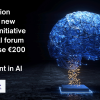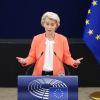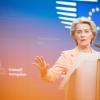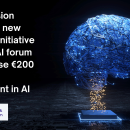“A new Europe must emerge”: our key takeaways from Ursula von der Leyen’s 2025 SOTEU address
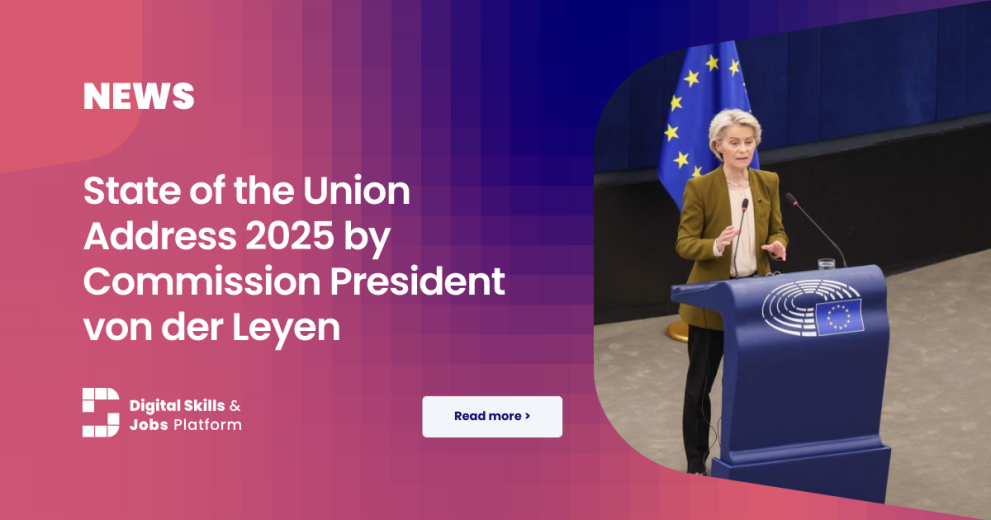
Every year, the “State of the Union” flagship speech – an address by the President of the European Commission to the European Parliament – is an opportunity to take stock of main developments within the EU Member States over the year, and look towards the future, charting a roadmap to the initiatives, themes and challenges – or high-scoring priorities on the EU agenda.
On 10 September 2025, Commission President Ursula von der Leyen stood in front of the Members of the European Parliament to deliver her 2025 SOTEU address.
Competitiveness as a cornerstone of an empowered Europe
The topic of competitiveness, which has rightfully been gaining traction in recent years, proved an essential cornerstone of the Commission President’s speech. As set out in the reports by Draghi and Letta, competitiveness is central to prosperity and underpins the EU’s ability to thrive amidst shifting economic and geopolitical circumstances. The Commission President reflected upon this:
“When it comes to digital and clean tech, we have to be faster, smarter and more European”.
- Ursula von der Leyen, 10 September 2025, State of the Union address
Digital and clean technologies are central to EU competitiveness – and massive investment in these areas will streamline European capacity to lead on breakthrough technologies with the potential to tackle the challenges of today and tomorrow. The EU Competitiveness Fund and Horizon Europe are two instruments to spearhead EU innovation, from boosting investments to building sustainable partnerships.
Realising the EU Single Market and Social Economy
In the words of Commission President von der Leyen, “only what gets measured, gets done”. The President announced that the European Commission will present a Single Market Roadmap to 2028, streamlining investment in key clean and digital technologies and promoting the “fifth freedom” for knowledge and innovation.
According to the International Monetary Fund (IMF), internal barriers are equivalent to a 45% tariff on goods and 100% on services. And the Single Market in Europe remains incomplete, especially when it comes to energy, finance and telecommunications.
New frontiers: scaling up innovation
Investments in breakthrough tech, ensured via the Digital Europe Programme and Horizon Europe, have clearly demonstrated an enhanced European ability to compete on a global scale.
The EU is a leader in research and development: in 2024, EU companies topped US and China counterparts in R&D investment growth, reversing a decade-long trend. Yet, more efforts are needed to boost the ability of EU start-ups to scale up and innovate.
Europe is the birthplace of ideas and is home to many start-ups with high-yielding potential in key areas – from AI to biotech – but lack of risk capital pushes them towards foreign investors. To secure the EU’s wealth, jobs and tech sovereignty, the Commission plans include the launch of a multi-billion euro Scale-Up Europe Fund to invest in fast-growing companies in critical technologies, in conjunction with private investors.
Simplification is key, and this shines across Commission priorities. A simplified regulatory environment around venture capital means that EU companies will turn to Europe before looking for solutions abroad. The Commission has already tabled six ‘omnibus’ simplification packages, and further omnibuses are on their way – including on digital – to help make business easier in Europe. In total, the Commission’s simplification proposal is expected to help save 8 billion EUR per year, stepping away from complex rules and procedures. In the words of Commission President Ursula von der Leyen, “to protect jobs, we need to make business in Europe easier”.
Quality skills for quality jobs
Fostering skills, education and training is key to creating the necessary conditions for quality jobs and life improvement throughout Europe. Indeed, the foundation of the European economy is its people: their hard work, their talent and their skills. This is key for enhancing competitiveness, which today translates to work know-how, competence and expertise.
Developments in recent years have highlighted the need for quality jobs to ensure modern employment can keep up the pace of modern economy, marked by the increased development and uptake of key technologies. Commission priorities over the past years have reflected this dependency, launching measures under the Union of Skills strategy (including the STEM Education Strategic Roadmap and the Action Plan on Basic Skills) - aiming to boost human capital in Europe and accelerate EU competitiveness. President von der Leyen announced that the Commission will propose a Quality Jobs Act – akin to a “matter of basic social justice”. Commission staff is also working on an ambitious EU Anti-Poverty Strategy, aiming to eradicate poverty from the European continent by 2050.
Unlocking the potential of digital technologies
Another key focus is unlocking the potential of digital technologies, such as AI or quantum. In the words of Commission President: “A European AI is crucial for our independence”.
Europe wants to be the home of the next wave of frontier technologies, especially in AI, high-performance computing and quantum. This is not a new ambition: in February 2025, the Commission President unveiled InvestAI, an initiative to mobilise private and public investment in AI of up to EUR 200 billion. At the heart of this is the massive investment in AI Gigafactories set out in the AI Continent Action Plan. The EU Innovation Agenda also serves to coordinate overall efforts.
Equipped with over 100,000 advanced AI processors, the AI gigafactories initiative will support start-up and scale-up innovation to deploy next-generation AI models. Since December 2024, 13 sites across Europe have been selected to establish AI factories. These AI factories will bring together EU supercomputers, large data resources, training facilities, universities, start-ups and human capital to create a powerful innovation environment that pushes the boundaries of technology. Previous achievements in this area, such as the adoption of the EU AI Act, the development of a powerful network of supercomputers and the creation of common EU data spaces all support these objectives. Response from the private sector has been overwhelming, with European key companies spearheading the common European effort for leadership in innovation.
Alongside AI, quantum technologies promise to revolutionise the way in which the world addresses complex tasks, from pharmaceutical breakthroughs to securing critical infrastructure. In July, the Commission put forward its Quantum Europe Strategy, with the goal of making Europe a quantum leader by 2030 by enabling more research, strengthening quantum ecosystems, promoting more private investment and supporting the development of quantum skills on our continent.
Further details and related areas of interest
Science and media literacy were two other aspects the Commission President touched upon in her address: “Science does not have a passport [...], yet it is the most valuable good”. The announced Choose Europe Package will invest 500 million EUR to attract and retain scientific talent.
Media literacy will also be prioritised via a specific Media Resilience Programme, aiming to support media literacy and independent journalism as the backbone condition for European democracy. Specific attention in the coming year will also be devoted to online bullying and malicious algorithms targeting children and adolescents, including on social media. To this end, the Commission will get a panel of experts together by the end of the year, to advise on the best European approach.
Want to know more?
Head over to the Commission’s website’s dedicated State of the Union page and watch Commission President Ursula von der Leyen’s 2025 address in full.

